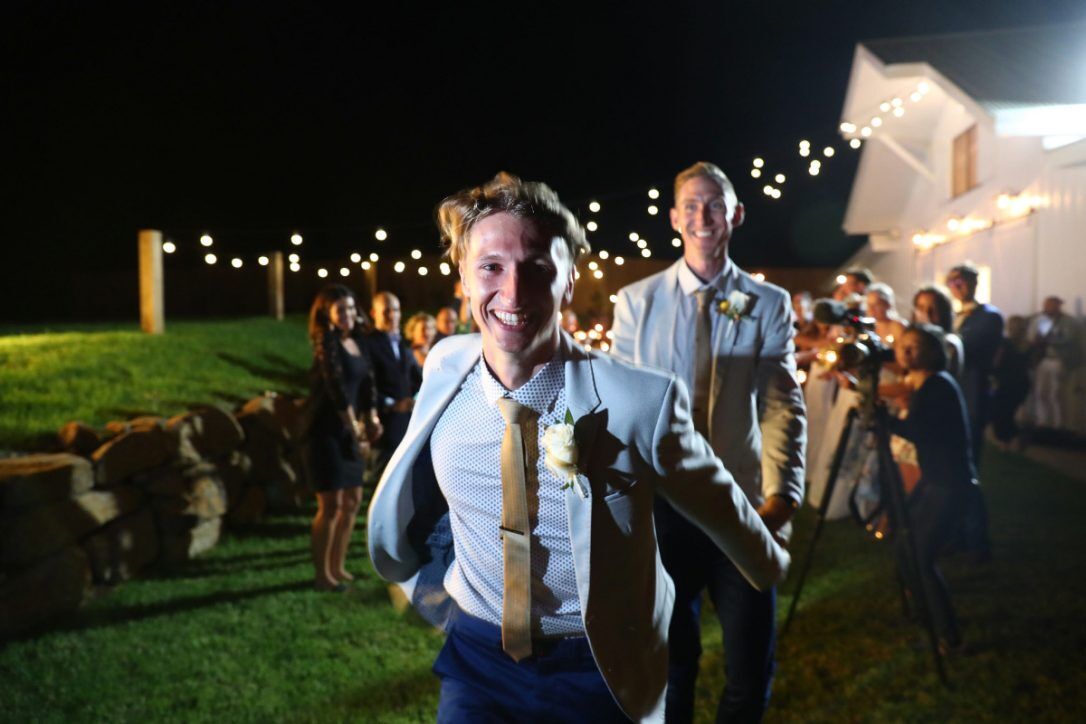This Tuesday, Australia’s last legal impediment of gay marriages expired. Although marriage equality became law on December 9, the country requires couples give a month’s notice for weddings. That made January 9 the first date in which same-sex couples could get married.
In the wee hours of Tuesday morning – the first hour to be exact – Australians celebrated the landmark ruling with midnight wedding ceremonies. Across the country, multiple same-sex couples said “I do” just after the clock struck 12.
Same-sex marriage was officially made law today in Australia bless 💜💙💚💛❤️
— Alison (@Alifluro) January 9, 2018
“It’s another way to show your love and appreciation of your partner in front of the people in your life,” Craig Burns told NBC News. The 29-year-old sprinter married fellow athlete, Luke Sullivan in a midnight ceremony near Tweed Heads.
In Newcastle, Rebecca Hickson married Sarah Turnbull. Hickson said they wanted to be one of the first lesbian couples to get married in Australia.
Shortly after dawn, Lainey Carmichael and Roz Kitschke had a ceremony at their home in Franklin, Tasmania, before 65 guests.
“This morning’s wedding marked the start of a new chapter in the lives of the two brides but also a new chapter in the life of the nation,” said Rodney Croome, long-time marriage equality advocate, spokesperson for Tasmanians United for Marriage Equality, and wedding guest of Carmichael and Kitschke.
Some couples were able to waive the one-month waiting period, having been married in previous weeks. Some such circumstances included terminal illness and previously booked overseas travel.
Congratulations to all the couples who are getting married today under Australia’s amended Marriage Act ❤️ #auspol #MarriageEquality
— Christine Forster (@resourcefultype) January 8, 2018
According to civil celebrant Charles Foley, the one-month waiting period is among the longest in the world. It was imposed decades ago by churches who wanted to give parishioners the opportunity to object to some religious unions.
“Unless people really wanted to make a statement and marry two minutes after midnight, people generally don’t choose Tuesday, which is a working day,” said Judy Ulich, civil celebrant. “In most cases, they want to have a celebration. They want people to be able to rejoice with them because they had such a big fight to get the right to marry.”
In 2013, Ulich married 11 same-sex couples in Canberra when a local territory law briefly provided marriage equality. The High Court ultimately upheld a federal government case that found the territory law invalid, as it contradicted the federal prohibition on same-sex marriage. Although she was looking forward to remarrying some same-sex couples whose marriages had been overruled, none of her 15 scheduled bookings were for Tuesday.
With overwhelming support from Parliament, marriage equality became law on December 9. It came after a nationwide postal survey, which found that 62% of respondents were in support of the ruling. Australia and Ireland are the only countries that have put the decision to a popular vote.
Don't forget to share:
Help make sure LGBTQ+ stories are being told...
We can't rely on mainstream media to tell our stories. That's why we don't lock our articles behind a paywall. Will you support our mission with a contribution today?
Cancel anytime · Proudly LGBTQ+ owned and operated
Read More in Impact
The Latest on INTO
Subscribe to get a twice-weekly dose of queer news, updates, and insights from the INTO team.
in Your Inbox













